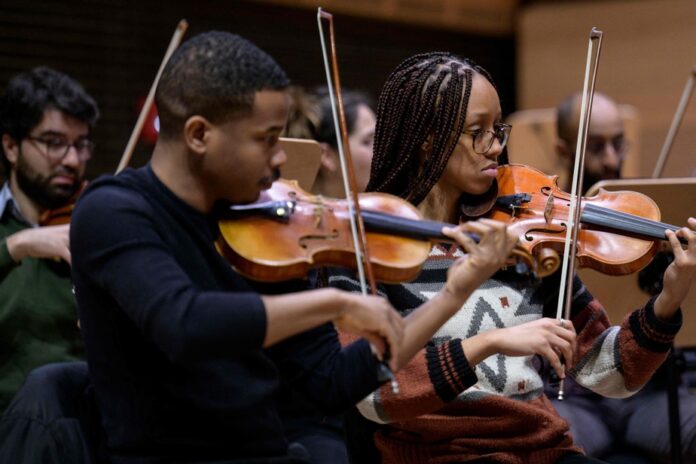(New York) After more than 30 years in classical music, British double bassist Chi-Chi Nwanoku finally said out loud what had been bothering her for a long time: why was she the only black musician on stage?
“Why didn’t I ask anyone? Why didn’t we ever talk about it? Was I just tolerated or people didn’t care and preferred the status quo? on the place of black people, wonders this British woman in an interview with AFP in New York.
In 2015, Nwanoku took the bull by the horns to build a more diverse classical music orchestra, from musicians to conductors, in an environment traditionally dominated by white people.
She founded Chineke!, the first predominantly black European orchestra, which is performing this week at the prestigious Lincoln Center in Manhattan, whose David Geffen Hall is home to the New York Philharmonic, the “Phil”.
The COVID-19 pandemic has forced the orchestra to repeatedly postpone its North American tour of the United States and Canada, to New York, Ottawa, Toronto, Boston, Worcester and Ann Arbor.
In America’s cultural and economic megalopolis, Chineke! plays a symphony composed by the American pianist Florence Price (1887-1953) as well as a Mozart concerto for clarinet with the first clarinetist of the “Phil”, Anthony McGill.
Which Chineke managed to achieve! in London echoes what has already been done on this side of the Atlantic with the Sphinx organization in Detroit, which promotes better representation of black and Hispanic artists in classical music.
“Because the vast majority of American orchestras lack transparency about their racial and ethnic statistics, we don’t know the percentage of black performers today,” laments the Black Orchestra Network, a collective of 40-band musicians launched in 2022. .
However, he notes “significant small advances”.
For Nwanoku, “it seems that the only colleagues of color who earn their place in an orchestra in this country are those who are exceptional.”
For black people, “you have to be much better (than whites, editor’s note) to get a job”, criticizes the Briton.
While the effect on the younger generation is immediate: seeing more diversity on stage “immediately opens doors,” she thinks.
“When you see someone who looks like you anywhere – at the supermarket, at the train station, at the concert, in the cinema – you immediately feel confident to go there! “.
“We are what we see”, concludes the British bassist.















